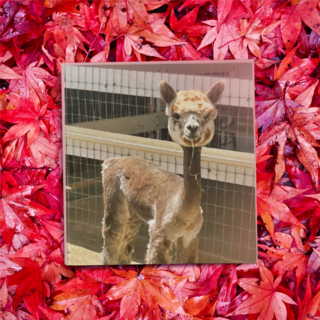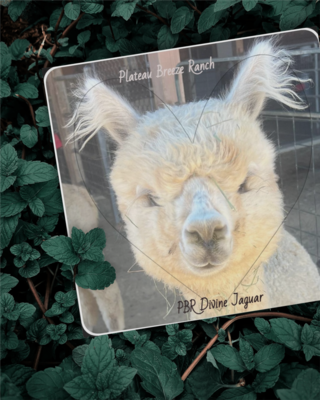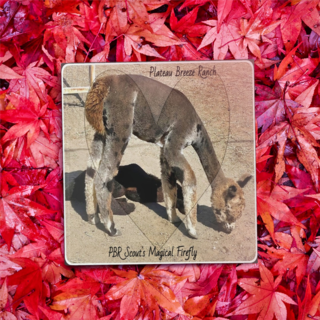FINANCIAL AND LIFESTYLE INVESTMENTS
I wanted to clarify the
industry's so-called special tax treatment.
This article is not tax advice, nor does it
provide in-depth information about the highlighted tax topics. Any person
looking into buying and breeding alpacas should contact their accountant about
any questions they may have. Marc and I found an advisor that had experience
with livestock and tax benefits before we dove into ownership of them.
For most active, hands-on alpaca breeders,
one of the cool things about Section 179 is that deductions from expensed
assets can be applied towards other income, not just income derived from the
business related to such purchases.
For example, let's say you earn $75,000 a year as a carpenter and report that
on your Schedule C. You're also starting to breed alpacas, but so far, your
income from the alpaca business is less than your expenses. If you spend
$25,000 in 2011 on assets that qualify for section 179, you can elect to fully
expense those assets on your 2011 taxes, which would reduce the taxable income
you make from your construction business to $50,000. If you are in the 25% tax
bracket, this could save you around $6,000 as well as the 15.3% self-employment
tax of $3,825—not enough to pay for the new assets, but enough to take a little
bite out of what it costs you to buy them.
Passive investors (pet alpaca owners, generally those who do not participate in
the day-to-day care and decision-making involved in the business) cannot apply
this accelerated depreciation to unrelated income. Passive investors can use
the value of expensed assets only to pay from the sale of alpacas, their
fleece, and other related farm income.
So does Section 179 apply only to alpaca breeders? NO. It applies equally
to any business, large or small. Our previous example about the carpenter could
be reversed, with the established alpaca breeder deciding to start a
construction company. The same tax rules apply.
Because start-up expenses for alpaca breeders and other businesses can be
substantial, Section 179 can help start-ups in any industry make it through their
business's expense-intensive initial capitalization phase. Please note there
are other limitations of taking the entire section 179 on an annual basis and
depending on your entity structure, so please consult a professional tax
advisor for your specific situation.
Taxpayers who actively participate in the activities of their alpaca business
can deduct the typical expenses associated with running a business. Those
expenses can include—but are not limited to—the cost of:
Hay and other feed
Fertilizer
Seed
Farm repairs and maintenance
Labor hired to work and maintain the ranch
Shearing costs (typically once per year)
Interest payments
Professional fees (Accountants, etc.)
Marketing and promotion
Veterinary expenses
Security for farms and animals
Breeding fees
Boarding fees
Show expenses
Travel expenses
Fiber processing
Advertising and marketing
Office expenses
Vehicle expenses
Industry publications
Educational seminars
Membership dues in industry organizations
Small tools
The business portion of taxes, utilities, telephone, insurance
Do alpaca farmers get preferential treatment in terms of what they can
deduct? Not. Any business can deduct legitimate expenses from gross
income to earn taxable income.
Alpaca farmers or investors can purchase several alpacas and then allow their
herd to grow over time without paying income tax on its increased size and
value until you sell the animals. Cattle farmers receive the same tax
rule. It works like employees who receive stock options from their
employers and do not pay tax until the options are exercised. Again, the
tax rules on tax-deferred income are not exclusive to alpaca owners. Many
businesses and individuals can take advantage of this and many other aspects of
the federal tax code.
There is nothing inherently evil, immoral or unethical about utilizing tax
breaks. Some people may argue that the government should not "subsidize"
any business in any way—including by creating tax incentives—and instead let
the free market entirely determine who succeeds and fails. For today, it's
enough to point out that the tax advantages touched on in this article do help
alpaca breeders—especially those just getting started—but the tax breaks apply
to all qualifying businesses, not just alpaca breeders.
This article has touched on a few federal tax code provisions, and additional
tax benefits may be available to alpaca owners and breeders at the state,
county and local levels. For example, many counties offer lower property tax
rates for farms and ranches that qualify for agricultural status. Be sure to
check with the taxing entities where you do business, as well as your tax
advisor, on whether your alpaca business qualifies for other tax
considerations.
Sunday, February 6, 2022




